Molnár Zsolt
Molnár Zsolt
| Website: | https://zsoltmolnar.org |
| Instagram: | zsolt_molnar_ |
| E-mail: | zsoltmolnar.zsm@gmail.com |
| Portfolio: | Download |
| CV: | Download |
The collage architectures that Zsolt Molnár has produced in recent years continue his earlier efforts to move away from the classical processes of reproductive prints and look for the latent conceptual possibilities in printmaking. The precursors to the forms that appear on the surfaces of Molnár’s pictures from the past year were mostly the machines and chemical processes used in agriculture, whose functioning principles and structural workings were researched and studied by the artist, who then abstracted them into geometric structures. His picture planes, which spread and sprawl over time into simplified yet ever more complex installations, always precisely follow – as though simulating them in space – the agricultural machinery and chemical processes he depicts, such as the visible and invisible processes of fertilising, spraying, and breeding, and their micro- and macro dimensions.
The series of colour collages entitled Agro-Wave (2018) was inspired by the science fiction-like spraying simulations of the plant protection products and structures used in agriculture. On the simultaneously depictive and abstracting picture surfaces, however, the dialectic of micro and macro-qualities was not the only eye-catching aspect, for there was also a clash between organic and inorganic qualities. The colour metal structures bearing the picture fields and the paper collages also thematized in a unique way the visual problématique of shifting scale. In 2019 Zsolt Molnár carried on with his chemical and technological observations associated with plant protection, but the focus of his attention was now the drone technologies used in agriculture and the imaging of vegetation with robotized, pilotless aircraft. In August 2018 he took part in the Artist in Residence Program of the Krinzinger Projekte, held in the western Hungarian village of Petőmihályfa, where his research was distilled into a series consisting of two components: one component was the iron sculpture entitled Vegetation Stress Map(2018), a three-dimensional abstraction of the positive and/or negative effects of the mechanism of action (MOA) of spraying, the dispersal of chemical agents, and their impact on the protection and growth of plants. The other component, entitled Methodological Thinking (2019), was a five-part collage that abstracted the true operating principle of the spraying simulation, as well as expressions and motifs taken from the digital interfaces of plant protection processes. The colour metal constructions, balancing in space, not only offered a graphic portrayal of the increasing presence of digital innovations in agriculture, but also, as a subtle association, alluded to the delicate balance between sustainable stability in the natural environment and total collapse.
Molnár’s latest works, produced for the Kisterem Gallery exhibition entitled Finally We Can Learn Something (2020), probe even further into the reality of the sustainable processes of equilibrium in nature. However, whereas his earlier works experimented with abstracting the artificial processes taking place in the natural environment, his most recent group of works concentrates on the “natural” processes happening in nature. The objects and motifs visible in the picture spaces of the collages are increasingly anthropomorphous in character, and the spraying machine with ‘antennas’ that appears in the collage of the central installation looks far more like an attacking and defending creature than a piece of agricultural equipment. The radically angular and geometric forms that were typical of his earlier installations, meanwhile, are now replaced with natural, biomorphic curves and arcs. (Mónika Zsikla)
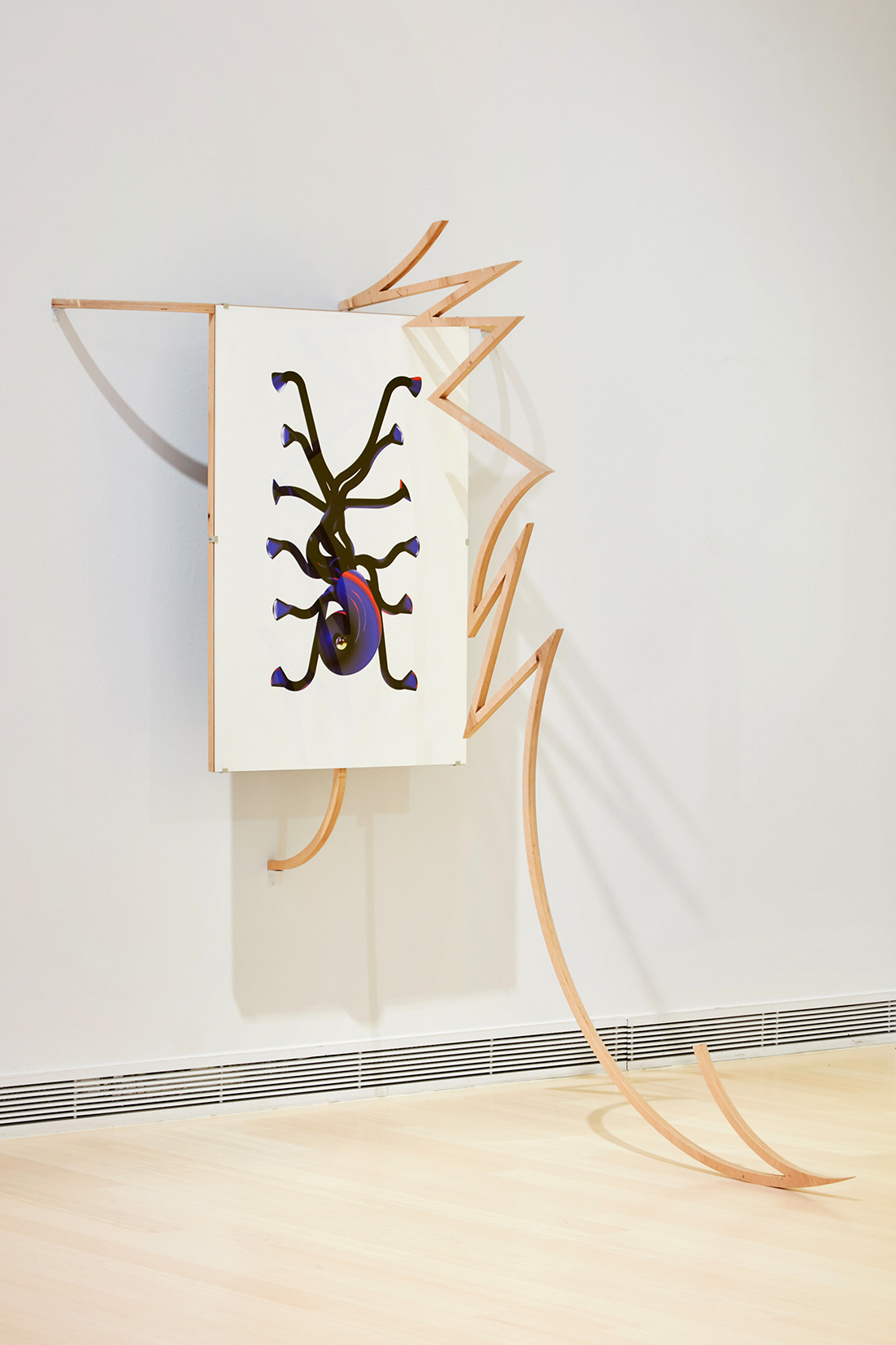
Vineyard Sprayer (2019)
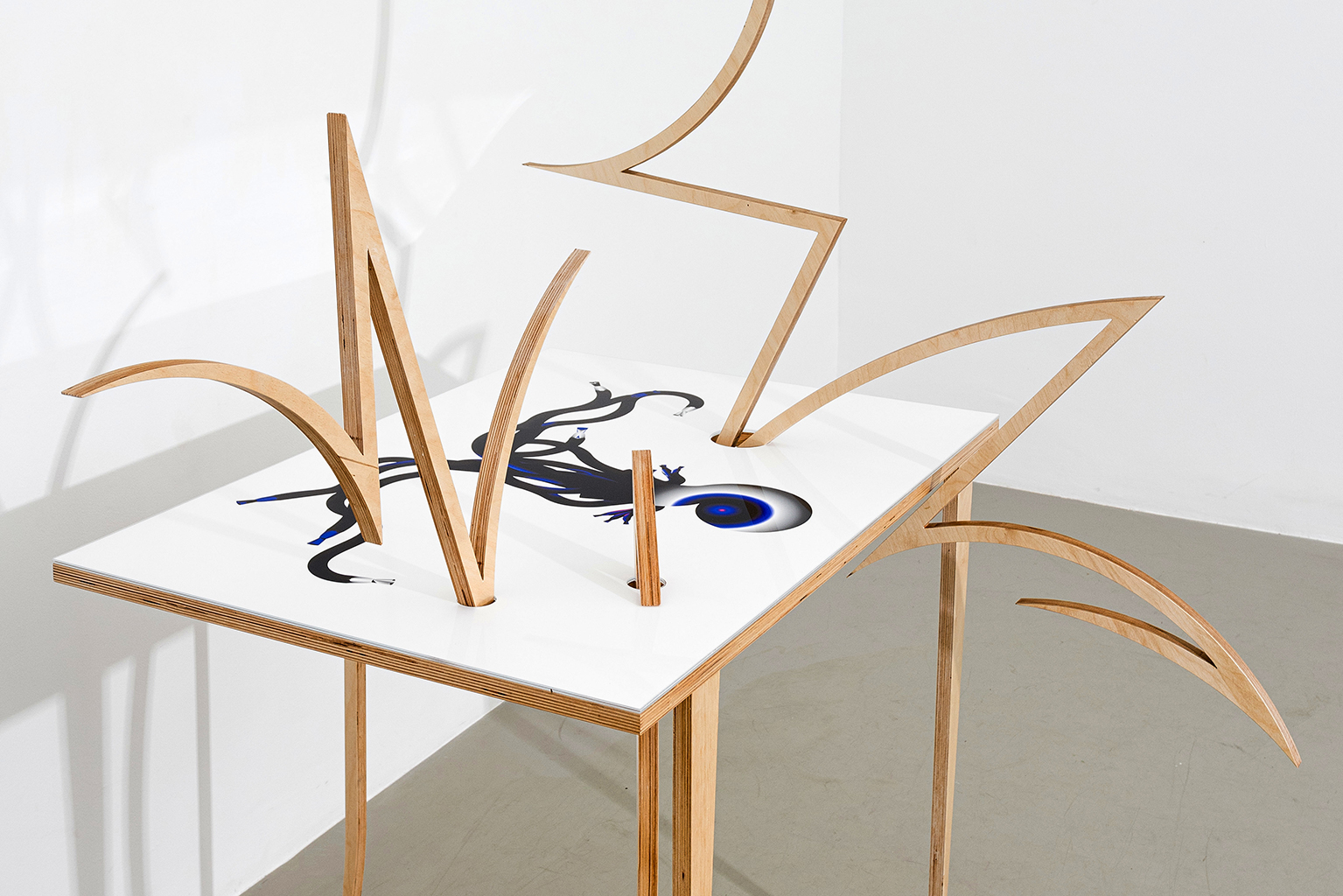
Tolerant Creature (2020)
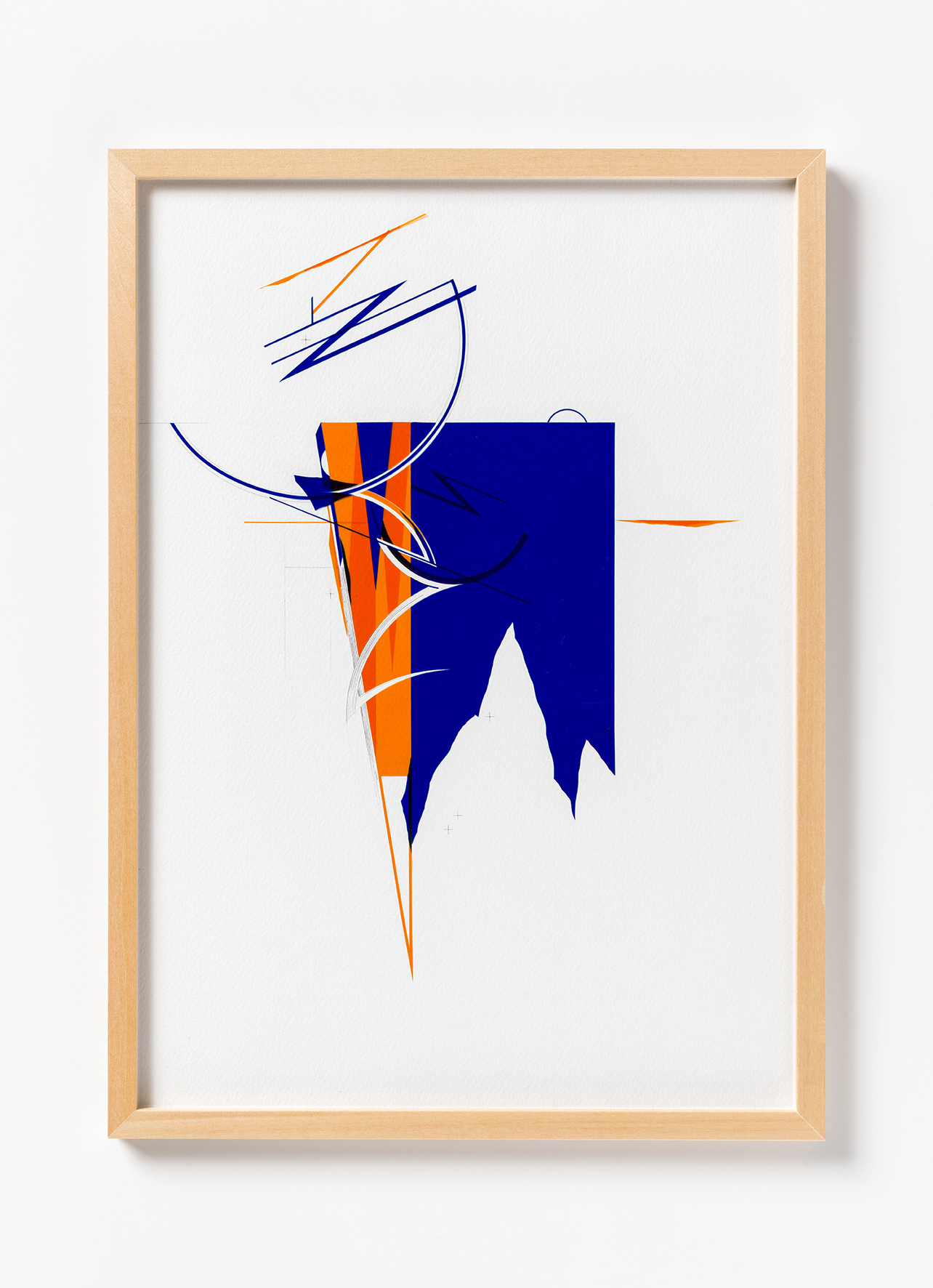
Sketches from Lisbon 1 (2022)
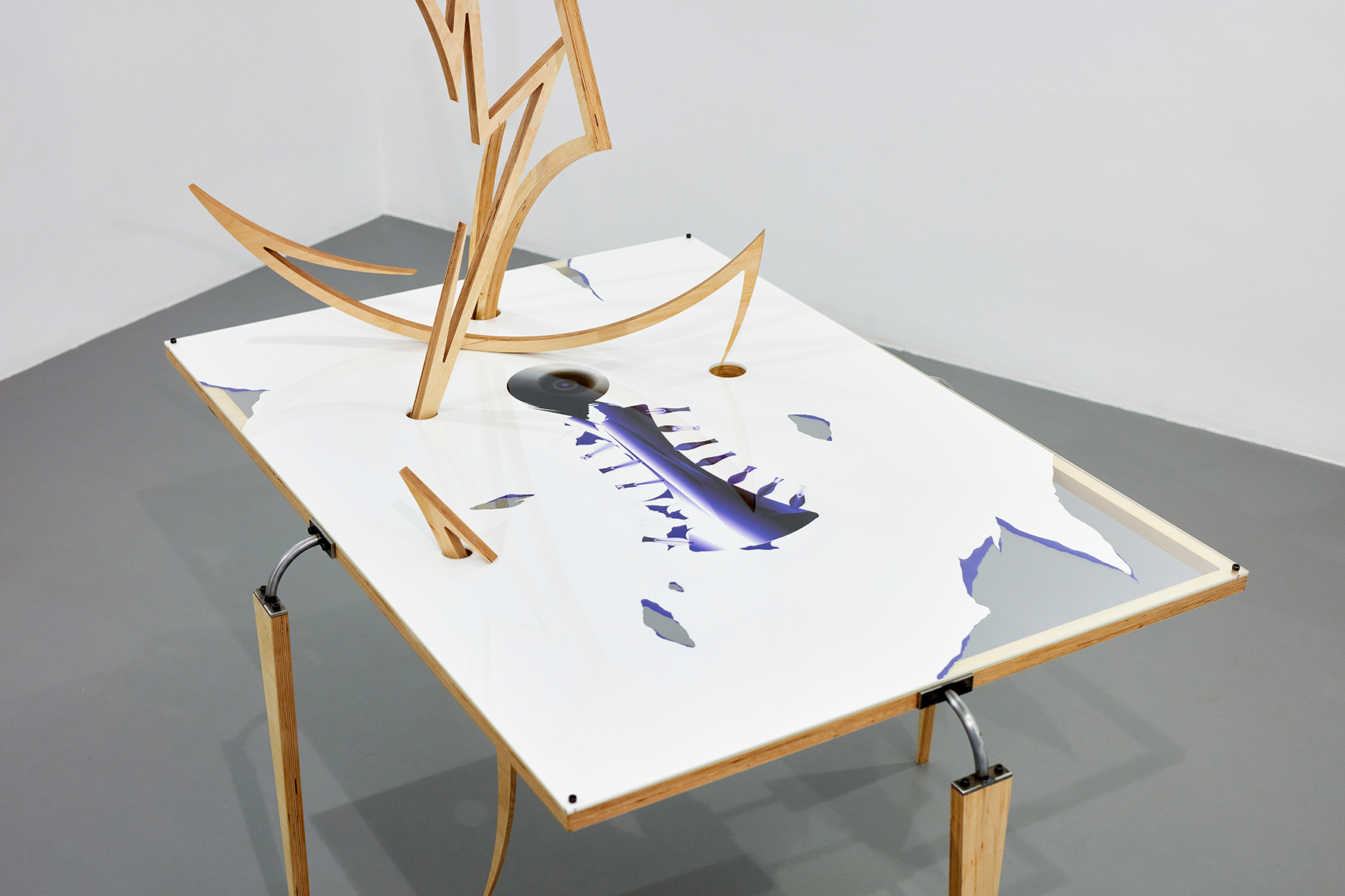
Nest Installation (2021)
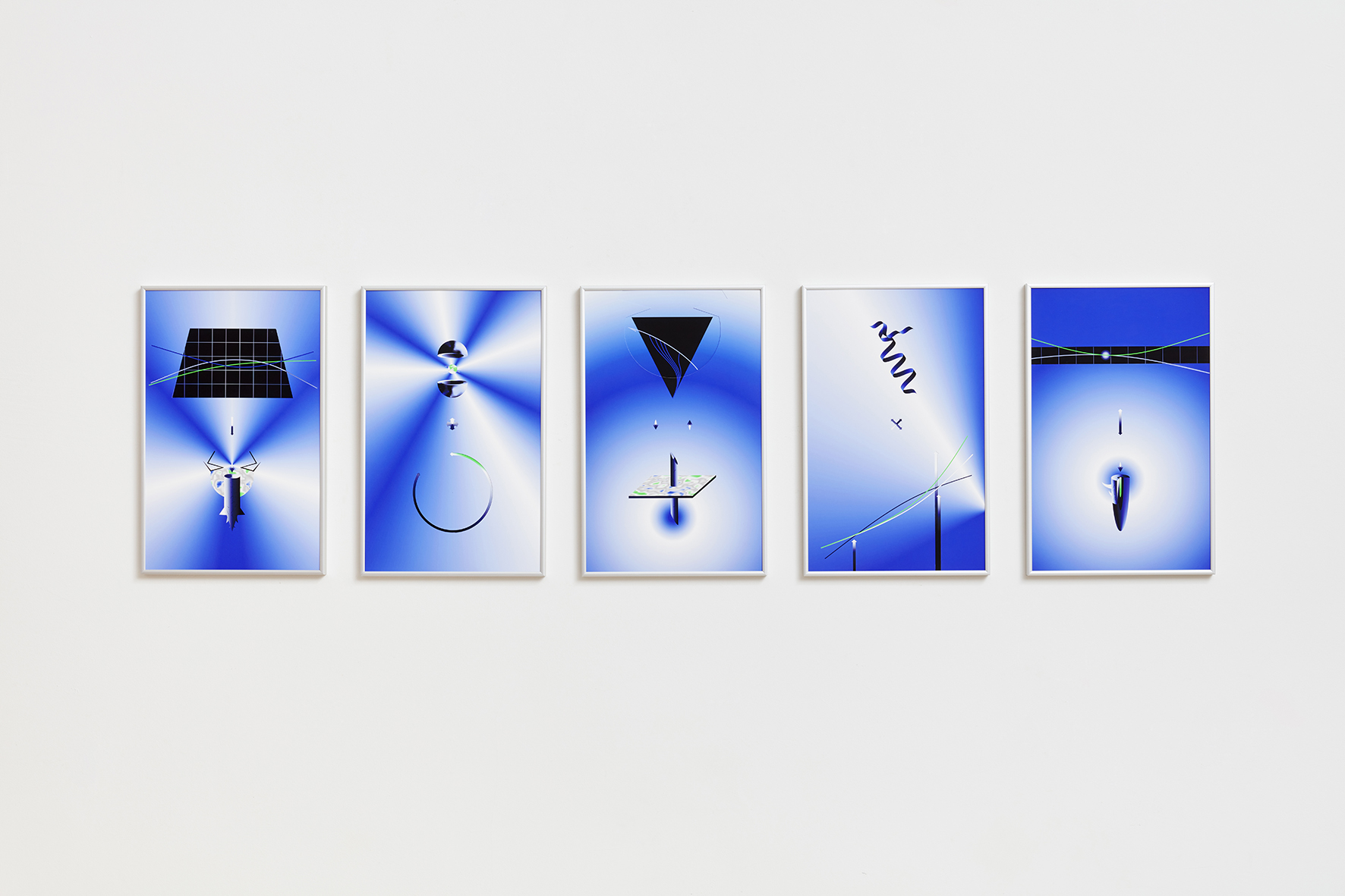
Methodological Thinking (2019)
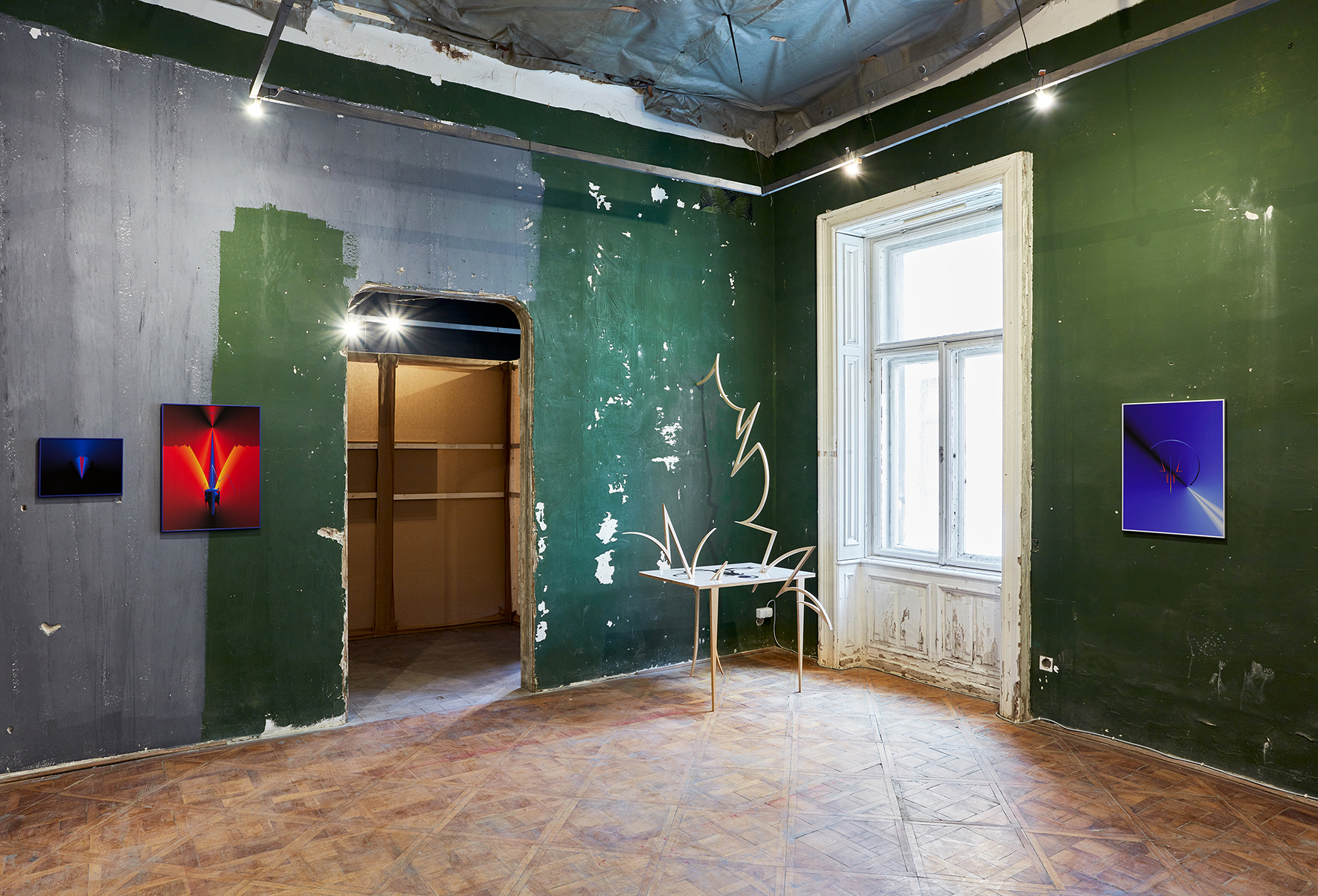
Finally We Can Learn Something (2020)